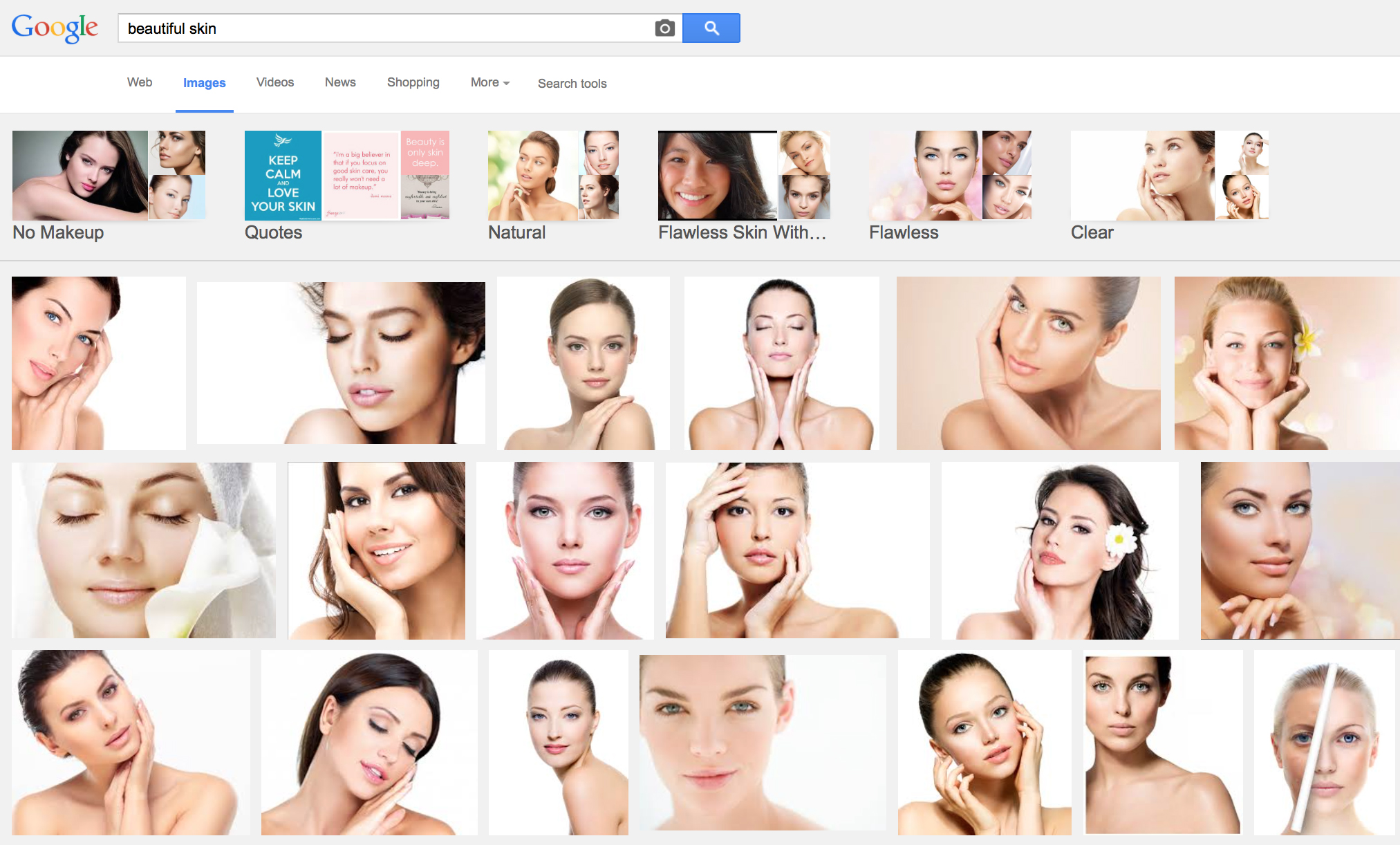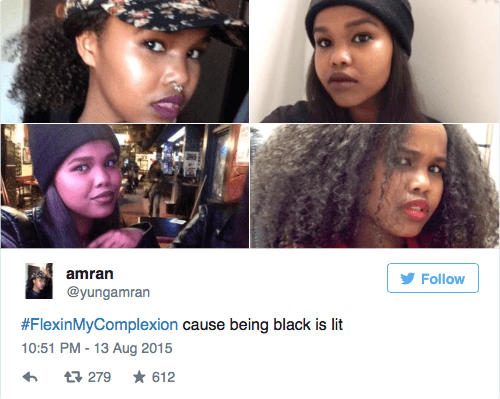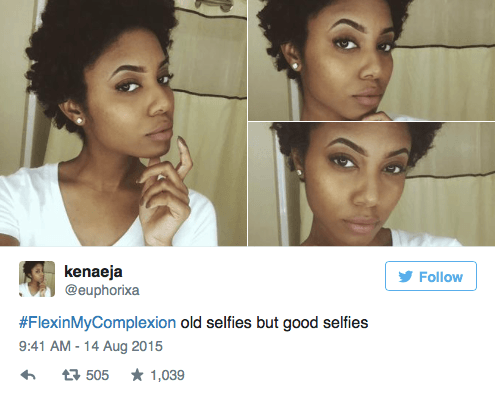Fed up with what many women are deeming beauty product inequality, clients with dark complexions have ignited a social media hashtag aimed at getting the industry to sit up and take note. Nadia Stennett reports.

It was just a couple of weeks ago that Sudanese model Nykhor Paul’s controversial Instagram post about the scarcity of makeup for black women made viral status; and now, women from across the globe are joining forces to send a powerful message to the beauty industry with the hashtag, #FlexinMyComplexion.
Aimed at addressing issues around the way women with dark skin tones are depicted when it comes to ideals of beauty, the hashtag movement is focused on challenging the portrayal of fair complexions as being the most desirable and widespread.
And it may have a point. Google ‘beautiful skin’ and you’re likely to find some several hundred thousand monochrome images of caucasian skinned women and a slew of products suited to light skin types including a spectrum of honey-hued foundations, bronzing lotions and skin lightening products.

It’s hard to deny the fact that if you’re a woman with an ebony-toned complexion, your beauty shopping trip is going to be a whole lot more challenging.
But while the #FlexinMyComplexion movement is already gaining media attention and applause for highlighting the beauty of women of all darker skin tones and ethnicities, it’s attracted a significant backlash from critics who are calling the social media protest nothing more than ‘reverse racism’ for failing to acknowledge the beauty in skin on every shade of the spectrum, including the most ivory.

And the concept is not particularly new. Em Ford of My Pale Skin, launched her controversially titled blog after suffering through the frustration of searching for makeup pale enough to suit her porcelain complexion, and more recently launched a video protest against online trolls for failing to see the beauty in imperfect skin.

Indeed, it seems your beauty shopping life is a whole lot easier if you happen to be one of the many clients who sit right in the middle of the skin tone spectrum, and perhaps there’s more the industry can do to represent and cater to women of all ethnicities, but at the end of the day, your client’s experience comes down to your individual treatment in the salon, so perhaps the better question to pose in all of this is, is your salon equipped for every complexion?
Have your say: Do you think the #FlexinMyComplexion movement is being unfair toward the beauty industry, or is there more you’d like to see done to cater to women with darker skin tones?

